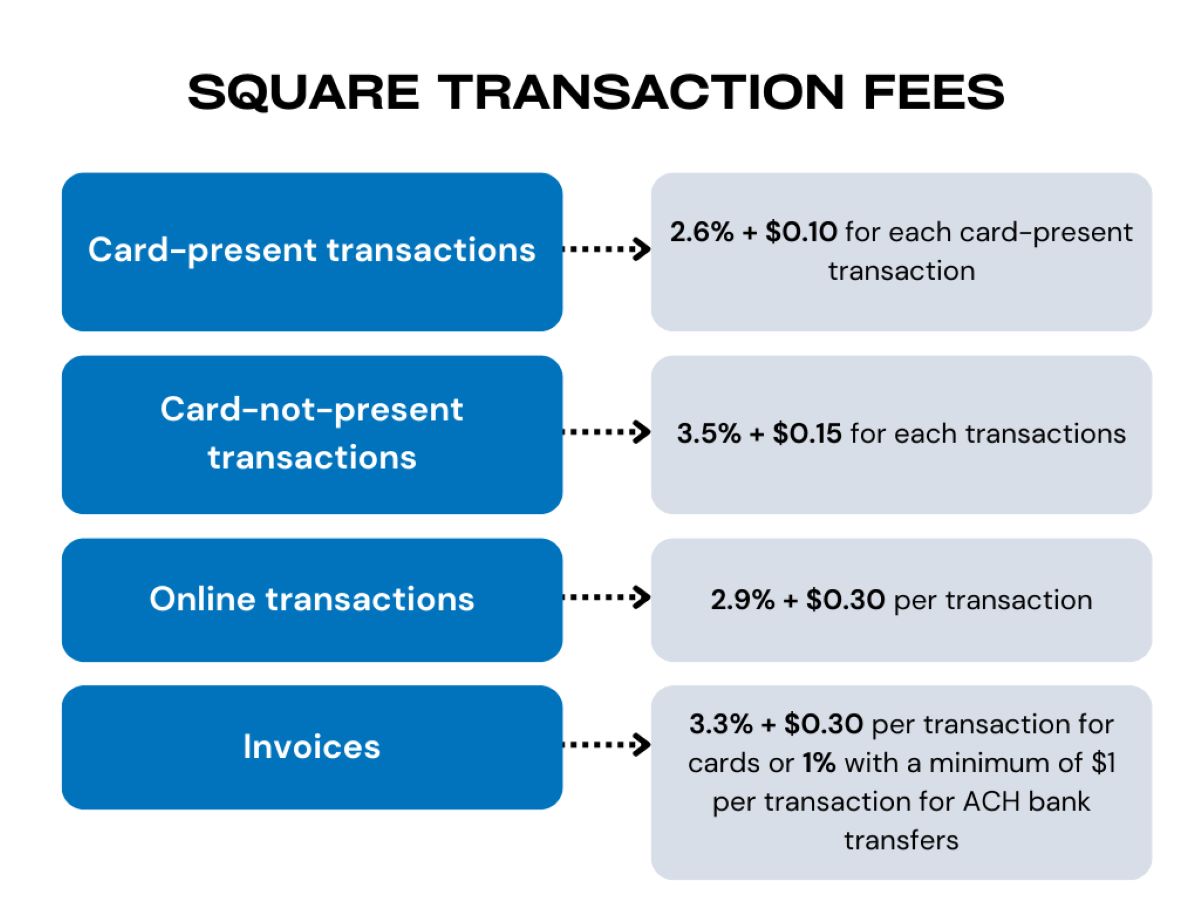

Finance
What Is Merchant Fee
Published: February 23, 2024
Learn about merchant fees and their impact on your finances. Understand the costs and factors involved in merchant fee structures. Gain insights to optimize your financial strategy.
(Many of the links in this article redirect to a specific reviewed product. Your purchase of these products through affiliate links helps to generate commission for LiveWell, at no extra cost. Learn more)
Table of Contents
**
Introduction
**
In the realm of financial transactions, merchant fees play a pivotal role, influencing the revenue and operational costs of businesses. Understanding the nuances of merchant fees is essential for merchants and consumers alike. These fees are associated with the processing of credit and debit card transactions, encompassing a range of charges imposed by payment processors and card networks. As such, comprehending the intricacies of merchant fees is crucial for businesses seeking to optimize their financial performance and for consumers aiming to grasp the underlying costs of their transactions.
Merchant fees are a form of compensation for the services rendered by payment processors, which enable businesses to accept electronic payments. These fees are typically calculated as a percentage of the transaction amount, along with a fixed amount per transaction. The complex nature of merchant fees necessitates a comprehensive understanding of their types, influencing factors, and strategic management to minimize their impact on businesses.
In this article, we will delve into the multifaceted world of merchant fees, shedding light on their various types, factors affecting their determination, and the significance they hold in the realm of commerce. Furthermore, we will explore strategies for businesses to minimize these fees while ensuring efficient payment processing. By unraveling the intricacies of merchant fees, this article aims to equip readers with the knowledge required to make informed decisions and navigate the financial landscape with confidence.
Understanding Merchant Fees
Merchant fees, also known as credit card processing fees, are the costs associated with accepting electronic payments from customers. These fees are an integral part of the payment ecosystem, enabling businesses to facilitate seamless transactions while incurring a certain level of expense. It is important to recognize that merchant fees are not uniform and can vary based on a multitude of factors, including the type of transaction, the payment processing method, and the involved financial institutions.
At its core, a merchant fee comprises several components, including interchange fees, assessment fees, and payment processor charges. Interchange fees are set by the card networks, such as Visa and Mastercard, and are paid to the cardholder’s bank as compensation for the risks and costs associated with processing transactions. Assessment fees, on the other hand, are collected by the card networks for their services and are passed on to the merchant by the payment processor. Additionally, payment processors levy their own charges for facilitating the transaction, adding another layer to the overall merchant fee structure.
Understanding the intricacies of merchant fees involves grasping the underlying mechanisms that govern electronic payment processing. It is essential for businesses to comprehend the breakdown of these fees and the impact they have on their bottom line. Moreover, consumers can benefit from understanding merchant fees, as it empowers them to make informed choices regarding their preferred payment methods and enhances their awareness of the costs involved in electronic transactions.
By delving into the nuances of merchant fees, businesses and consumers can gain a deeper appreciation for the dynamics of electronic payments and the associated costs. This understanding serves as a cornerstone for informed decision-making and strategic planning in the realm of financial transactions.
Types of Merchant Fees
Merchant fees encompass a diverse array of charges that collectively form the cost of processing electronic payments. Understanding the various types of merchant fees is essential for businesses to gauge the comprehensive impact on their financial operations. Here are the primary types of merchant fees:
- Interchange Fees: These fees are set by the card networks, such as Visa and Mastercard, and are paid to the cardholder’s bank. Interchange fees are influenced by factors such as the type of card used, the nature of the transaction, and the industry of the merchant.
- Assessment Fees: Collected by the card networks for their services, assessment fees are a component of the overall merchant fee structure. They are passed on to the merchant by the payment processor.
- Payment Processor Charges: Payment processors levy their own charges for facilitating transactions, which include costs for authorization, capture, and settlement of funds.
- Incidental Fees: These fees encompass a range of additional charges, such as chargeback fees, retrieval request fees, and batch processing fees, which may arise in specific transaction scenarios.
Each type of merchant fee contributes to the overall cost of processing electronic payments, and businesses must factor in these charges when assessing the financial implications of their payment processing activities. By discerning the distinct types of merchant fees, businesses can develop strategies to optimize their payment processing costs and enhance their financial efficiency.
Moreover, awareness of the types of merchant fees empowers businesses to engage in informed negotiations with payment processors and financial institutions, potentially leading to more favorable fee structures and cost savings. By navigating the landscape of merchant fees with a comprehensive understanding of their types, businesses can strategically manage their payment processing expenses and bolster their financial performance.
Factors Affecting Merchant Fees
Merchant fees are influenced by a myriad of factors that collectively determine the cost of processing electronic payments. Understanding these factors is crucial for businesses seeking to manage and optimize their payment processing expenses. Here are the key elements that affect merchant fees:
- Transaction Volume: The volume of transactions processed by a business can impact the merchant fees, as payment processors often offer volume-based pricing, where higher transaction volumes may lead to lower per-transaction fees.
- Transaction Value: The value of individual transactions can influence merchant fees, with higher transaction amounts potentially leading to higher fees, especially in percentage-based fee structures.
- Card Type: Different card types, such as credit, debit, rewards, or corporate cards, carry varying interchange fees, which can affect the overall merchant fees incurred by businesses.
- Industry Type: The industry in which a business operates can impact merchant fees, as certain industries may be categorized as high-risk, leading to higher processing costs.
- Payment Processing Method: The method used to process payments, such as in-store terminals, online gateways, or mobile payments, can influence the associated fees, with online and mobile transactions often incurring additional costs.
- Payment Processor Pricing Structure: The pricing model employed by the payment processor, whether tiered pricing, interchange-plus pricing, or flat-rate pricing, can significantly impact the overall merchant fees.
By comprehending the factors that affect merchant fees, businesses can strategically align their payment processing activities to mitigate costs and optimize their financial performance. Moreover, proactive management of these influencing factors empowers businesses to make informed decisions regarding their payment processing methods and fee negotiation strategies.
Furthermore, staying abreast of industry trends and regulatory developments is crucial, as changes in the payment landscape can impact merchant fees. Adapting to evolving industry dynamics and leveraging innovative payment solutions can contribute to cost efficiencies and enhanced financial sustainability for businesses.
Importance of Merchant Fees
Merchant fees hold significant importance in the realm of commerce, exerting a substantial impact on the financial dynamics of businesses and the overall consumer experience. Understanding the importance of merchant fees is instrumental for both merchants and consumers in navigating the intricacies of electronic payment processing. Here are key aspects highlighting the significance of merchant fees:
- Cost Management: Merchant fees directly contribute to the cost of accepting electronic payments, thereby influencing the profitability and operational expenses of businesses. By comprehending and managing these fees, businesses can optimize their financial performance and allocate resources effectively.
- Consumer Pricing: Merchant fees can impact consumer pricing strategies, as businesses may factor in these costs when determining product or service prices. Consequently, understanding and managing merchant fees can contribute to competitive pricing and enhanced consumer value.
- Payment Processing Efficiency: Efficient management of merchant fees is essential for ensuring streamlined payment processing operations. By optimizing fee structures and payment methods, businesses can enhance the efficiency and reliability of their transaction processes.
- Financial Transparency: Awareness of merchant fees fosters financial transparency for businesses and consumers alike. Understanding the costs associated with electronic payments enables informed decision-making and promotes trust in financial transactions.
- Business Sustainability: Effective management of merchant fees is integral to the sustainability of businesses, particularly for small and medium enterprises. By minimizing unnecessary costs and optimizing fee structures, businesses can bolster their financial resilience and long-term viability.
Moreover, the importance of merchant fees extends to the broader economic landscape, influencing market dynamics and financial inclusion. By comprehending and managing these fees, businesses can contribute to a more efficient and accessible payment ecosystem, fostering economic growth and consumer empowerment.
Overall, recognizing the importance of merchant fees empowers businesses to make informed decisions regarding their payment processing strategies, cost management practices, and consumer engagement initiatives. By integrating a comprehensive understanding of merchant fees into their operational framework, businesses can drive financial efficiency and sustainable growth in an increasingly digitized commercial landscape.
How to Minimize Merchant Fees
Minimizing merchant fees is a strategic imperative for businesses aiming to optimize their financial performance and enhance operational efficiency. By implementing proactive measures and leveraging industry best practices, businesses can effectively manage and reduce the impact of merchant fees. Here are key strategies to minimize merchant fees:
- Optimize Payment Processing Methods: Assess the cost implications of different payment processing methods, such as in-store terminals, online gateways, and mobile payments. Opt for methods that align with the business’s transaction volume and cost-efficiency objectives.
- Negotiate Fee Structures: Engage in negotiations with payment processors and financial institutions to secure favorable fee structures. Leverage transaction volume and industry-specific insights to advocate for competitive pricing and reduced fees.
- Monitor Interchange Rates: Stay informed about interchange rates set by card networks and assess their impact on merchant fees. Identify opportunities to optimize card acceptance strategies based on interchange fee dynamics.
- Implement Fraud Prevention Measures: Mitigate the risk of chargebacks and fraudulent transactions by implementing robust fraud prevention measures. Proactively addressing fraud can reduce associated fees and enhance payment processing security.
- Review Processing Agreements: Regularly review processing agreements and statements to identify any unnecessary or inflated fees. Scrutinize the details of agreements to ensure transparency and accuracy in fee structures.
- Utilize Technology Solutions: Explore technology-driven solutions, such as payment gateway integrations and advanced analytics tools, to streamline payment processes and identify cost-saving opportunities.
By adopting a proactive approach to minimizing merchant fees, businesses can effectively manage their payment processing costs and optimize their financial resources. Furthermore, staying abreast of industry trends and regulatory changes is essential, as it enables businesses to adapt their fee management strategies in response to evolving market dynamics.
Additionally, seeking guidance from financial advisors and industry experts can provide valuable insights into optimizing fee structures and enhancing payment processing efficiency. By leveraging expertise and industry knowledge, businesses can navigate the complex landscape of merchant fees with confidence and strategic acumen.
Conclusion
Merchant fees constitute a fundamental aspect of electronic payment processing, wielding a profound influence on the financial landscape of businesses and the overall consumer economy. As businesses and consumers traverse the dynamic realm of electronic transactions, a comprehensive understanding of merchant fees emerges as a cornerstone for informed decision-making and strategic financial management.
By unraveling the complexities of merchant fees, businesses can optimize their payment processing costs, enhance operational efficiency, and drive sustainable growth. Equipped with insights into the types, influencing factors, and strategic management of merchant fees, businesses can navigate the intricacies of electronic payments with acumen and foresight.
Moreover, the significance of merchant fees extends beyond the realm of commerce, permeating the broader economic fabric and consumer experience. By fostering transparency, efficiency, and cost management, businesses contribute to a more inclusive and resilient payment ecosystem, fostering economic empowerment and financial sustainability.
As businesses endeavor to minimize merchant fees and optimize their payment processing activities, strategic measures such as fee negotiation, technology utilization, and fraud prevention emerge as pivotal tools in the pursuit of financial efficiency. By embracing proactive fee management strategies and leveraging industry best practices, businesses can effectively mitigate the impact of merchant fees and bolster their financial resilience.
In essence, the landscape of merchant fees embodies a convergence of financial intricacies, strategic imperatives, and consumer dynamics. By embracing a holistic understanding of these fees and integrating proactive management practices, businesses can navigate the evolving payment ecosystem with confidence, driving value, and fostering sustainable growth.
Ultimately, the journey of understanding and managing merchant fees transcends mere financial transactions, encapsulating a narrative of strategic foresight, economic empowerment, and operational excellence. By embracing this narrative, businesses embark on a trajectory of financial efficiency, consumer trust, and enduring resilience in an increasingly digitized commercial landscape.














